
Culture
15:34, 11-Sep-2018
China's oldest master of ancient Nanyin music
Updated
14:44, 14-Sep-2018
Lin Yingying
04:17
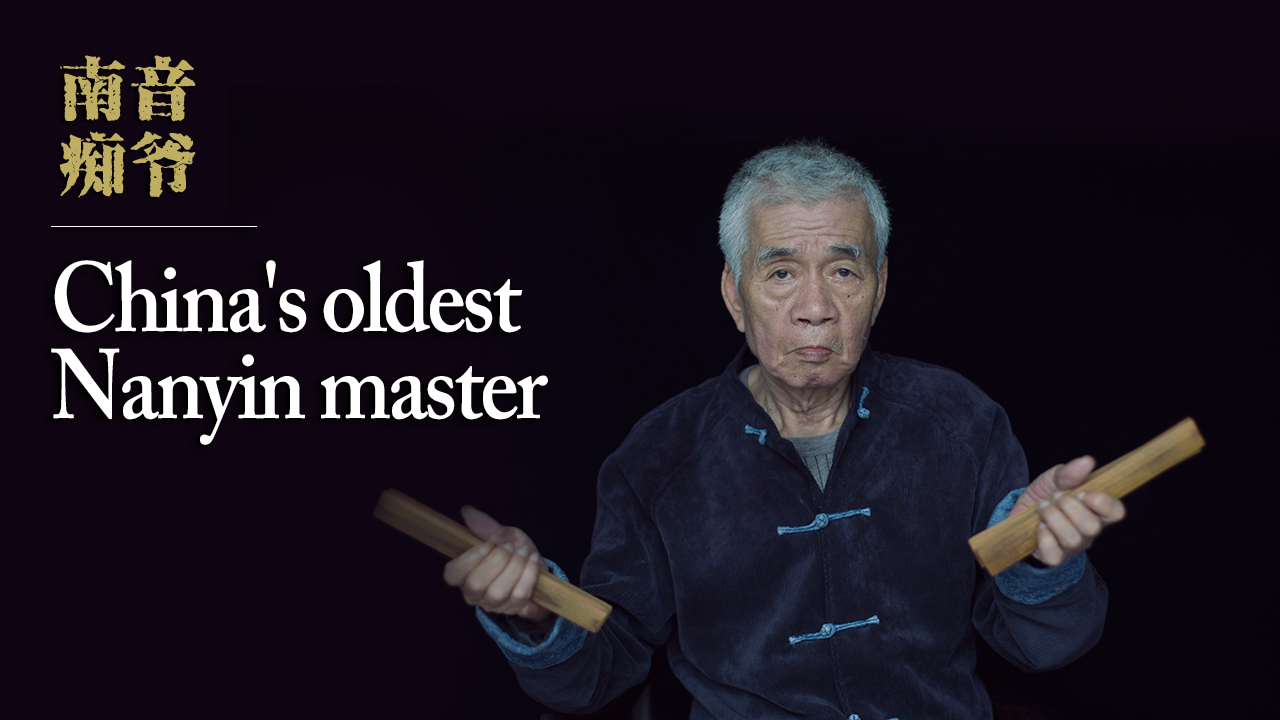
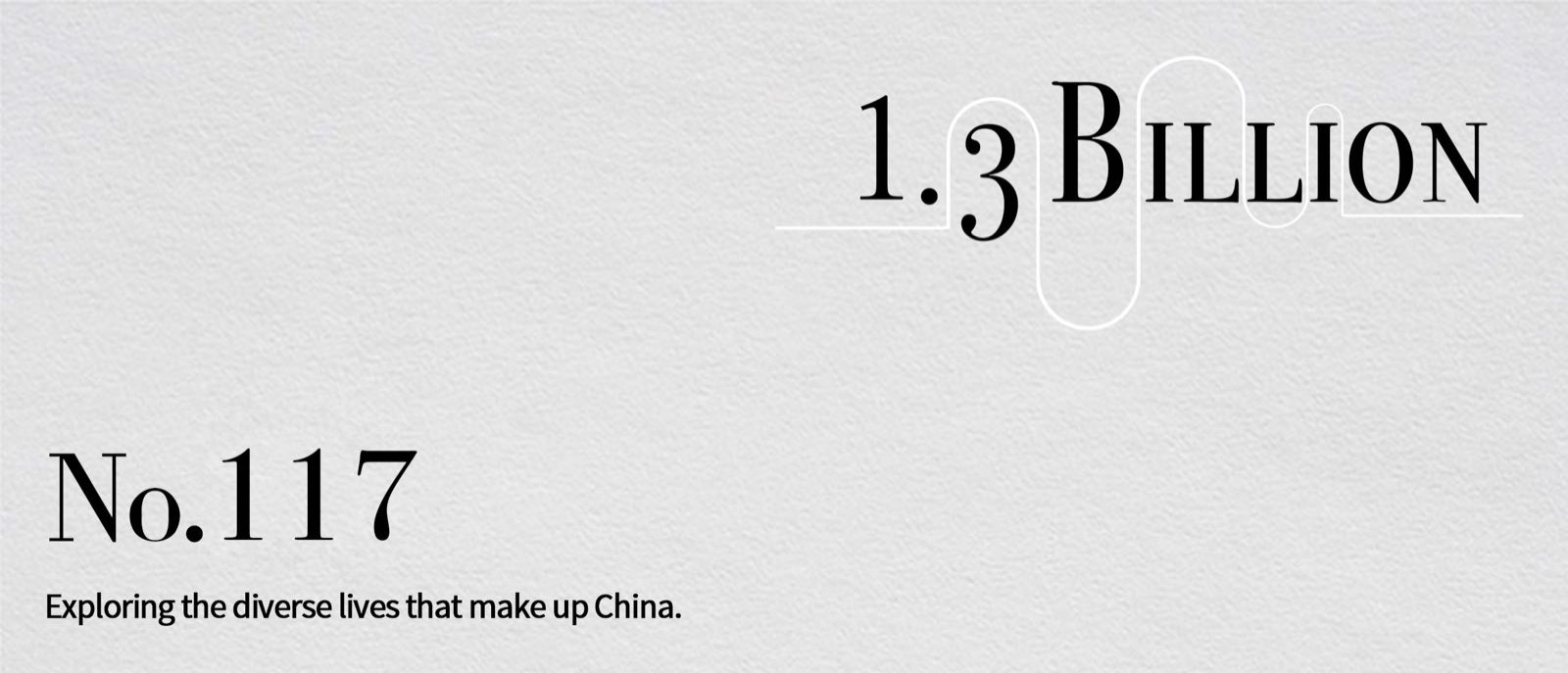
CGTN
CGTN
Ke Qingjiang is an 83-year-old man who has spent his entire life playing Nanyin music. He has sometimes forgotten to brush teeth, but never forgets to take part in Nanyin activities. He has mastered many Nanyin melodies, and is able to play all kinds of Nanyin instruments. Even at the age of 83, he never stops practicing Nanyin.
Nanyin music is called the living fossil of Chinese ancient music. It can be tracked back to the Han and Tang dynasties, was improved upon in the Five Dynasty, and was well developed during the Song Dynasty. It is the oldest form of traditional Chinese music that still exists today. Its uniqueness lies in its slow and lingering melody. In 2009, Nanyin was listed to the list of Intangible Cultural Heritage of Humanity by UNESCO.
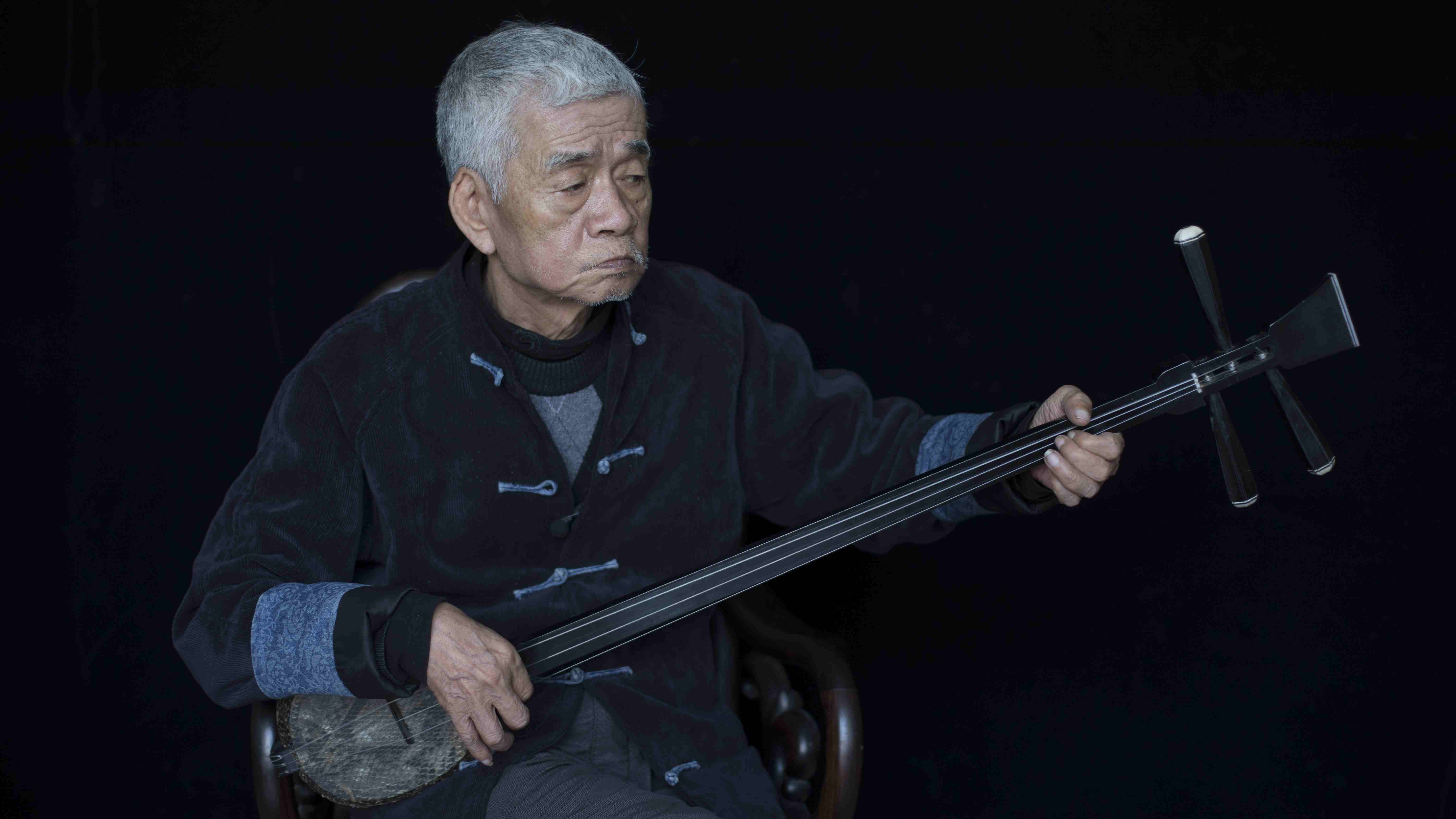
Ke Qingjiang
Ke Qingjiang
Nanyin is mainly popular in the southern Fujian Province, in places such as Xiamen, Quanzhou, and Zhangzhou, and is also popular in Taiwan, Hong Kong, Macao, and other Minnan-speaking areas of Southeast Asia.
Different areas play different styles, each with its own merit. During the late Ming and early Qing Dynasty, Nanyin became popular in Xiamen. Jiantang, Jinhuage, and some other Nanyin Associations were set up one after another.
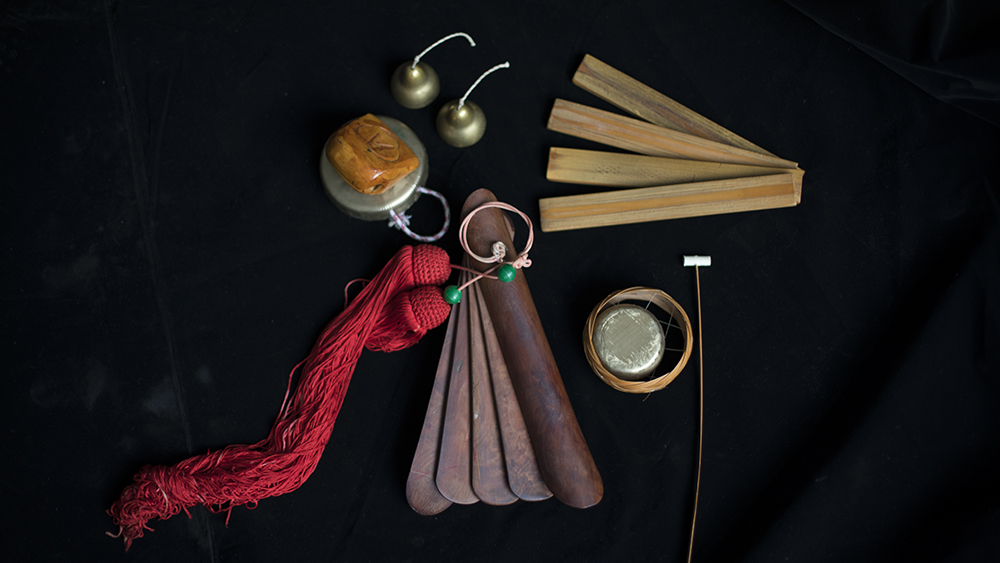
Small Nanyin instruments.
Small Nanyin instruments.
Qingjiang Ke was born in Quanzhou, and came to Xiamen when he was a child. Because both his parents were Nanyin tutors, he began to learn Xiamen's traditional Nanyin at a young age. He jokes that his prenatal education music is certainly Nanyin. At the age of six, he started singing Nanyin at weddings. At that time, Nanyin was played for essential activities like weddings, funerals, and idolatrous processions. "It is also played in many tea houses, as they used Nanyin to attract customers," said Ke.
Ke started seriously learning Nanyin in his teens. He used to walk around Xiamen looking for Nanyin tutors. When he started studying in school, he would continue his Nanyin study after classes were over. When he started working, he used his free time to learn – the ins and outs, he learned from dozens of Nanyin tutors. This effort helped him finally learn to play all the Nanyin instruments. Not only that, he also analyzed Nanyin melodies and compositions.
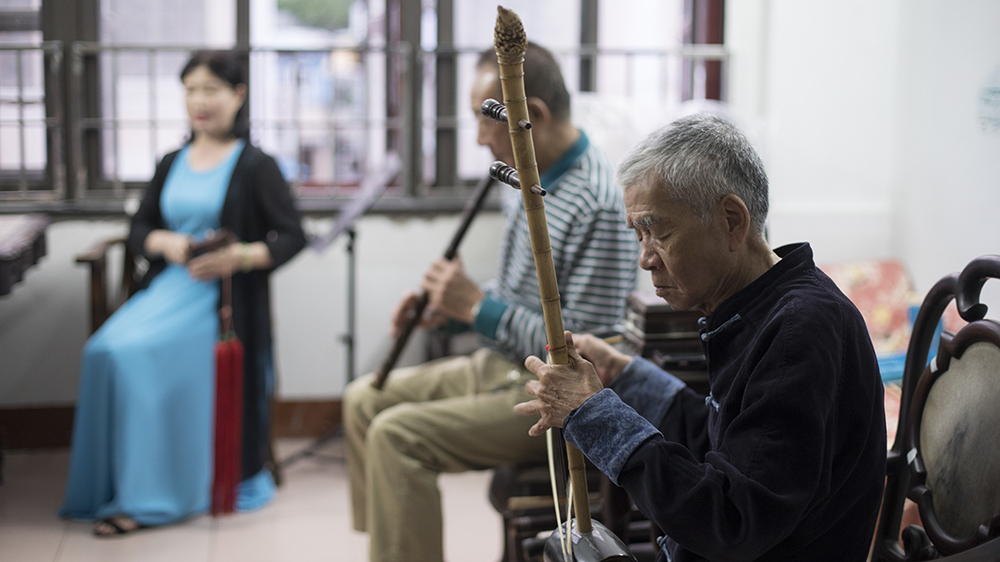
Ke and his students performing Nanyin music.
Ke and his students performing Nanyin music.
Not long ago, a song called "Song of Tomorrow" became popular after Chinese young singer Karry Wang's rendition. But few people know that the Nanyin version of "Song of Tomorrow" was also popular in Xiamen's Nanyin circle 40 years ago, and has won five to six awards at Nanyin competitions. In 1978, Ke recomposed the poem "Song of Tomorrow" into a Nanyin version.
"But now, few people less than 40 years old know about it. And people up to 40 who know about it will soon pass away," said Ke. His daughter, 45-year-old Weiwei Ke, might be the only middle-aged person who could remember it.
There are thousands of Nanyin songs, "Song of Tomorrow" is not the only one on the edge of extinction. "Today, Xiamen's Nanyin has faded out," said Ke. There are fewer platforms for Nanyin now. Ke explained that Nanyin is mainly for entertainment nowadays, as amateur players don't make any income from it.
Even so, Ke's passion for the ancient music has never stopped. He has a dozen students and teaches them twice every week. Teaching and all kinds of Nanyin activities make up his daily routine.
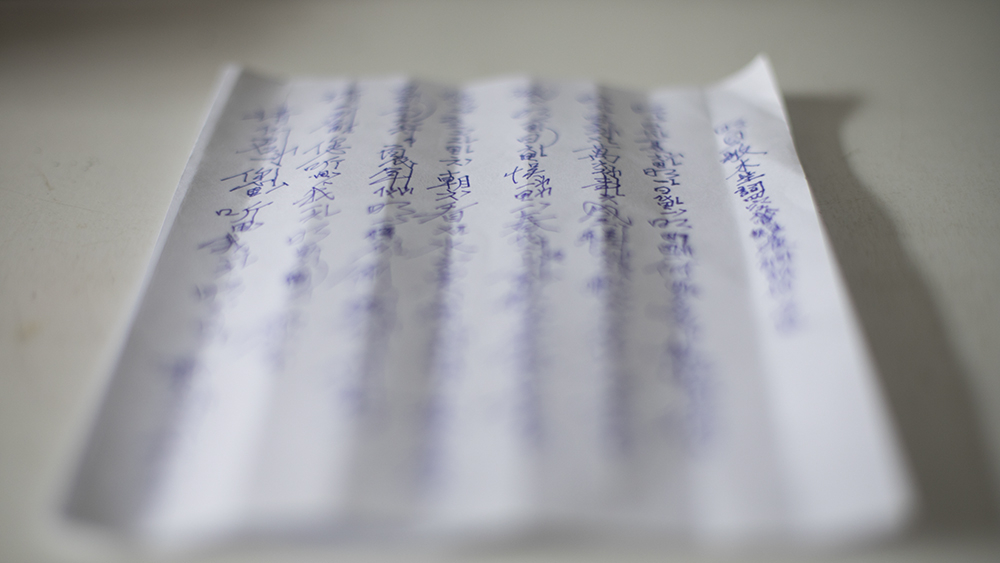
Nanyin melodies written by Mr. Ke.
Nanyin melodies written by Mr. Ke.
"They are all highly educated. I am pleased that they come to me to learn Nanyin. Once they finish their apprenticeship, they could also be Nanyin tutors and teach more people." He pins his hopes on these youth.
"In the past, I could play the Chinese bamboo flute continuously two and a half hours, but now, it's less than three minutes. My power is less than one-tenth compared with the past. But as long as I am alive, I will never stop practicing Nanyin." Ke is not only delivering skills, but also the music's spirit.
If this is what Ke does at the age of 83, how can the youth slack off?

The story is one in The 1.3 Billion series exploring the diverse lives that make up China.
The story is one in The 1.3 Billion series exploring the diverse lives that make up China.

SITEMAP
Copyright © 2018 CGTN. Beijing ICP prepared NO.16065310-3
Copyright © 2018 CGTN. Beijing ICP prepared NO.16065310-3